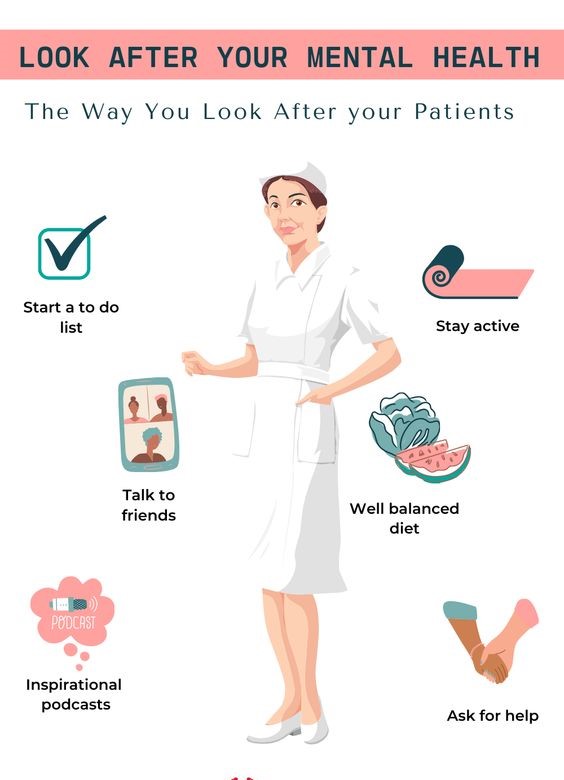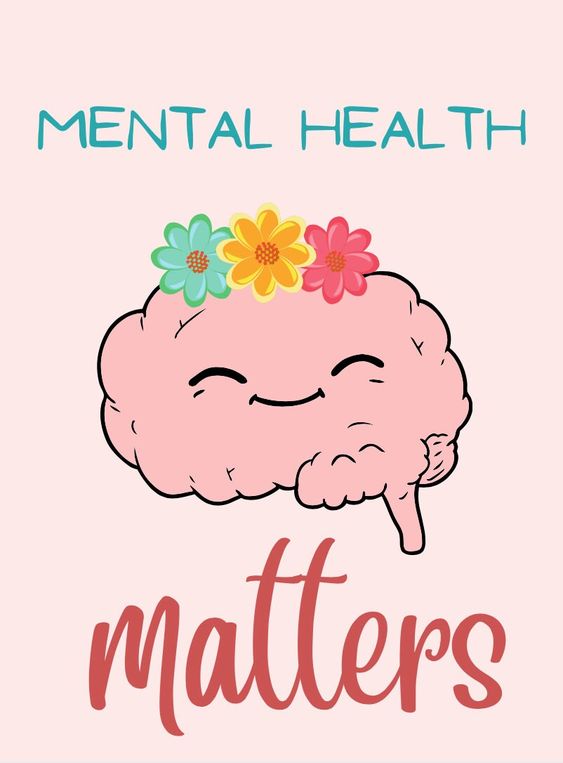
Table of Contents
Mental Health Nursing and conditions are increasingly prevalent globally, impacting individuals of all ages and backgrounds. The World Health Organization estimates that nearly one in four people will experience a mental health condition at some point in their lives. This growing awareness underscores the urgent need for effective Mental Health Nursing care, where nurses play a crucial role.
While often overlooked, mental health is fundamental to overall well-being. It encompasses our emotional, psychological, and social well-being and influences our thoughts, feelings, and behaviour. Mental illness, in contrast, is a diagnosable condition characterized by significant disturbances in thoughts, feelings, and behaviors that impact an individual’s ability to function in daily life.
Mental health conditions can profoundly impact patients’ overall well-being, affecting their physical health, relationships, work, and quality of life. They can also contribute to significant societal costs, highlighting the need for comprehensive and accessible mental health services.
This exploration focuses on Mental Health Nursing, examining nurses’ vital role in supporting patients with mental health needs within general healthcare settings. We will explore effective assessment, communication, and care delivery strategies, empowering nurses to address common challenges and improve patient outcomes. By equipping nurses with the knowledge and skills to navigate the unique complexities of mental health care, we can create a more supportive and compassionate healthcare system for all.
Challenges and Considerations in Mental Health Nursing

Mental Health Nursing presents a unique set of challenges, requiring nurses to possess a specialized skillset and navigate a complex landscape of patient needs and system limitations.
Knowledge and Stigma:
Nurses working in Mental Health Nursing require a strong foundation in understanding mental health conditions, their symptoms, and appropriate interventions. A lack of knowledge can contribute to misdiagnosis and inappropriate treatment and perpetuate the stigma surrounding mental illness. Stigma can discourage patients from seeking help, leading to delayed treatment and poorer outcomes.
Strategies:
- Ongoing Education and Training: Encourage nurses to engage in continuous learning and specialized training in Mental Health Nursing to enhance their knowledge and skills.
- Open and Respectful Communication: Promote open dialogue about mental illness within healthcare, fostering a culture of understanding and respect.
Time Constraints and Limited Resources:
Busy healthcare environments often place significant time constraints on nurses, limiting their ability to dedicate sufficient time to providing comprehensive mental health care. Moreover, a scarcity of mental health resources in some settings can exacerbate these challenges.
Strategies:
- Increased Staffing and Resources: Advocate for increased staffing levels and allocating adequate mental health resources to support Mental Health Nursing practice.
- Prioritized Mental Health Assessments: Make mental health assessments routine in patient care, ensuring early identification and intervention for those with mental health needs.
- Collaborative Care Models: Implement collaborative care models that involve multidisciplinary teams, bringing together mental health professionals, primary care providers, and other specialists to optimize care delivery.
Burnout and Self-Care:
Supporting patients with mental health challenges can be emotionally demanding, leading to burnout and compassion fatigue among nurses. Prioritizing self-care strategies is essential for nurses’ well-being and ability to provide high-quality care.
Strategies:
- Healthy Coping Mechanisms: Encourage nurses to develop healthy coping mechanisms and engage in activities that promote emotional well-being.
- Mental Health Support for Nurses: Provide nurses access to mental health services and support groups, creating a supportive environment prioritizing their mental health.
By addressing these challenges and implementing effective strategies, we can create a more supportive and sustainable environment for Mental Health Nursing and ensure that patients receive the care they need and deserve.
Effective Communication Strategies for Mental Health Nursing

In Mental Health Nursing, effective communication is not just a skill; it’s a lifeline for patients. It’s the foundation for building trust, understanding patient needs, and fostering a therapeutic relationship that supports healing and recovery.
Building Rapport and Therapeutic Communication:
Therapeutic communication is a deliberate approach to build rapport and trust with patients. It involves active listening, empathy, and validation, creating a safe and supportive environment for open dialogue.
Strategies:
- Active Listening: Pay full attention to the patient’s verbal and nonverbal words, demonstrating genuine interest and understanding.
- Empathy and Validation: Acknowledge and validate the patient’s emotions, even if you don’t fully understand their perspective. Use phrases like, “It sounds like you’re feeling…” or “I can see how that would be frustrating.”
- Open-Ended Questions: Avoid asking yes/no questions that limit the patient’s responses. Instead, use open-ended questions like, “Tell me more about what you’re going through.”
- Avoid Judgmental Language: Use non-judgmental language, avoiding words like “should,” “ought to,” or “must.”
De-escalation Techniques for Crisis Situations:
When working with agitated or aggressive patients, de-escalation techniques are crucial to maintaining safety and promoting calm. These techniques involve maintaining a calm and respectful demeanor, actively listening, and demonstrating empathy.
Strategies:
- Active Listening: Listen to patients’ concerns and acknowledge their feelings without judgment.
- Validate Emotions: Empathize with the patient’s emotions, even if you don’t agree with their behaviour.
- Offer Choices: Give the patient a sense of control by offering them choices within a safe and structured environment.
- Setting Clear Boundaries: Establish clear boundaries and limits on unacceptable behaviour.
Culturally Competent Communication:
Mental health beliefs and practices vary significantly across cultures. Recognizing and respecting these differences is essential for Mental Health Nursing.
Strategies:
- Utilizing Interpreters: When necessary, utilize interpreters to ensure effective communication with patients from different linguistic backgrounds.
- Avoiding Assumptions: Avoid making assumptions about a patient’s cultural beliefs or practices, and instead, ask open-ended questions about their preferences and expectations.
- Respecting Cultural Practices: Recognize and respect cultural practices related to mental health, seeking to incorporate them into care planning whenever possible.
By mastering these communication strategies, nurses can foster trust, build therapeutic relationships, and provide culturally sensitive care that meets the unique needs of their patients. Effective communication is at the heart of Mental Health Nursing, enabling nurses to provide compassionate and effective care that supports healing and recovery.
Strategies for Comprehensive Care of Patients with Mental Health Needs
Mental Health Nursing goes beyond simply addressing symptoms; it’s about providing holistic, patient-centred care that addresses the unique needs of individuals living with mental health conditions. This requires a multifaceted approach encompassing assessment, collaboration, and patient empowerment.
Assessment and Screening:
Mental health assessments and screenings should be routine in patient care, regardless of the presenting reason. Early detection and intervention can significantly improve outcomes and reduce the long-term impact of mental health conditions.
Strategies:
- Standardized Screening Tools: Utilize validated screening tools designed to identify mental health conditions, such as the PHQ-9 for depression or GAD-7 for anxiety.
- Integrated Assessments: Integrate mental health assessments into routine checkups, particularly for patients with chronic illnesses or who are experiencing physical health problems that can be linked to mental health.
Collaboration and Care Coordination:
Comprehensive care for patients with mental health needs often requires collaboration with a team of mental health professionals.
Strategies:
- Clear Referral Pathways: Establish clear and streamlined referral pathways to connect patients with mental health specialists (psychiatrists, therapists, social workers) as needed.
- Shared Electronic Medical Records: Utilize shared electronic medical records systems to facilitate communication and information sharing between healthcare providers involved in patient care.
- Interdisciplinary Team Meetings: Participate in multidisciplinary team meetings to discuss individual patient needs, develop comprehensive care plans, and ensure seamless care coordination.
Psychoeducation and Patient Empowerment:
Empowering patients to manage their mental health actively is crucial for long-term recovery and well-being.
Strategies:
- Patient Education: Provide clear and understandable information about their diagnoses, treatment options, potential side effects, and self-management strategies.
- Patient Involvement: Involve patients in treatment decisions, respecting their preferences and values and encouraging them to participate in their care actively.
- Resource Sharing: Offer resources for self-management, such as support groups, online platforms, or educational materials.
By incorporating these strategies, Mental Health Nursing can move beyond treating symptoms to providing comprehensive and compassionate care that empowers patients to thrive.
Promoting Mental Health Literacy and Advocacy
Mental Health Nursing is not just about providing care to individuals with mental health conditions; it’s about fostering a broader culture of understanding and support. This involves promoting mental health literacy among healthcare professionals and advocating for systemic changes that improve access to care.
Mental Health Literacy:
Nurses are uniquely positioned to promote mental health literacy, educating both colleagues and the public about common mental health conditions, effective treatments, and ways to reduce stigma.
Strategies:
- Educational Workshops: Organize educational workshops for nurses and other healthcare staff, covering topics such as identifying mental health conditions, understanding different treatment modalities, and promoting patient-centered care.
- Mental Health Awareness Campaigns: Participate in mental health awareness campaigns within the healthcare setting, sharing information, resources, and personal stories to raise awareness and break down stigma.
Advocacy for Mental Health Resources:
Nurses play a crucial role in advocating for increased mental health resources and improved access to care.
Strategies:
- Policy Advocacy: Advocate for policy changes that support mental health services, including increased funding, expanded access to mental health professionals, and improved insurance coverage for mental health treatment.
- Community Outreach: Engage in community outreach programs to educate the public about mental health conditions, promote early intervention, and connect individuals with resources.
Fostering a Culture of Support:
Nurses can help create a culture of mental health awareness and support within healthcare settings by promoting open communication, demonstrating empathy, and creating a welcoming environment for patients.
Strategies:
- Open Communication: Encourage open communication about mental health within the healthcare team, fostering a culture of understanding and support.
- Empathetic Care: Provide empathetic and non-judgmental care to patients with mental health conditions, recognizing their challenges and demonstrating compassion.
By promoting mental health literacy, advocating for increased resources, and fostering a culture of support, Mental Health Nursing can contribute to a healthcare system that prioritizes the mental well-being of all individuals.
Mental health nursing goes beyond simply treating symptoms; it’s about providing holistic, compassionate care. To effectively support patients with mental health needs, nurses must:
- Establish therapeutic relationships: Build trust and rapport through active listening, empathy, and respect for individual experiences.
- Develop individualized care plans: Tailor interventions based on patient preferences, goals, and cultural backgrounds.
- Promote self management: Empower patients with coping skills, stress reduction techniques, and knowledge about their conditions.
- Advocate for resource access: Connect patients with support groups, community services, and appropriate medical specialists.
By embracing these strategies, mental health nurses can significantly improve the lives of patients experiencing mental health challenges. For further insight into this vital field, nursing students are encouraged to visit the comprehensive resource, nursingpapers.com.







